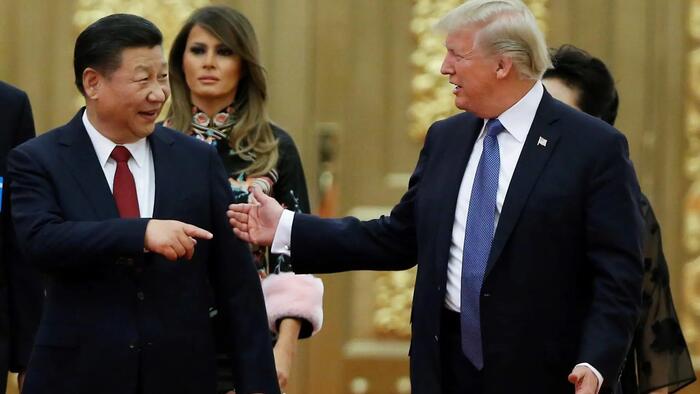In an unprecedented diplomatic gesture, President-elect Donald Trump has extended an invitation to Chinese President Xi Jinping to attend his inauguration on January 20, marking a historical first in U.S.-China relations. The significance of such an invitation is profound, as it not only symbolizes a potential thaw in the often fraught dynamics between these two global powers but also reflects Trump’s intent to foster direct dialogue with both allies and rivals. Transition spokesperson Karoline Leavitt articulated this approach as a means for Trump to establish an open line of communication with various world leaders, suggesting a shift away from adversarial posturing and towards constructive engagement.
The invitation to Xi is noteworthy, especially in light of the contentious backdrop defined by trade disputes and geopolitical tensions. With plans to invite other international dignitaries, including Hungarian Prime Minister Viktor Orbán, the inauguration is shaping up to be a diplomatic occasion aimed at showcasing an assertive American foreign policy. Leavitt emphasized that world leaders are eager to connect with Trump, anticipating a return to power and asserting America’s strength as a stabilizing force on the global stage. This advancing diplomatic strategy could reflect Trump’s commitment to recalibrating relationships with countries traditionally viewed as adversaries.
Republican strategist Newt Gingrich commented on the implications of this invitation, interpreting it as part of Trump’s broader strategy of maintaining momentum in international relations. Gingrich suggested that Trump is driven by a constant desire to engage proactively with global leaders, indicating that this invitation may stem from a desire to reconnect with Xi amidst challenging economic and political realities. Such a move could suggest that Trump is eager to explore new avenues for cooperation, even as tensions over trade loom large on the horizon.
Bloomberg’s analysis of the invitation highlighted its potential role as a diplomatic olive branch, offering a softer approach during a time of escalating economic competition between the U.S. and China. This gesture could signal Trump’s willingness to seek common ground, particularly in light of discussions surrounding impending tariffs that threaten to heighten economic tensions. Economic market reactions show optimism, with a surge in Chinese consumption-related shares, reflecting a degree of investor sentiment supported by hopes of renewed collaboration following this diplomatic overture.
Notably, this invitation raises important questions about the future of U.S.-China relations. Trump’s overture to Xi suggests a belief that diplomacy can be prioritized over conflict, potentially setting a precedent for less confrontational strategies in international affairs. As he prepares to take office, Trump also faces the challenge of balancing these diplomatic gestures with his earlier commitments to impose tariffs on Chinese goods, which could strain the goodwill generated from the invitation. His administration is poised to navigate a complex landscape, where the desires for increased dialogue coexist with the pressing realities of protectionist economic policies.
In conclusion, Trump’s invitation to Xi Jinping represents a significant and historically unprecedented move in the context of U.S.-China relations. It may mark the beginning of a new chapter, characterized by an emphasis on dialogue and potential collaboration, contrasting sharply with the adversarial tone of previous administrations. As Xi weighs the invitation and Trump’s economic strategies unfold, the global community will closely observe how this diplomatic overture plays out, as it carries substantial implications for trade, international cooperation, and the geopolitical landscape over the coming years.

